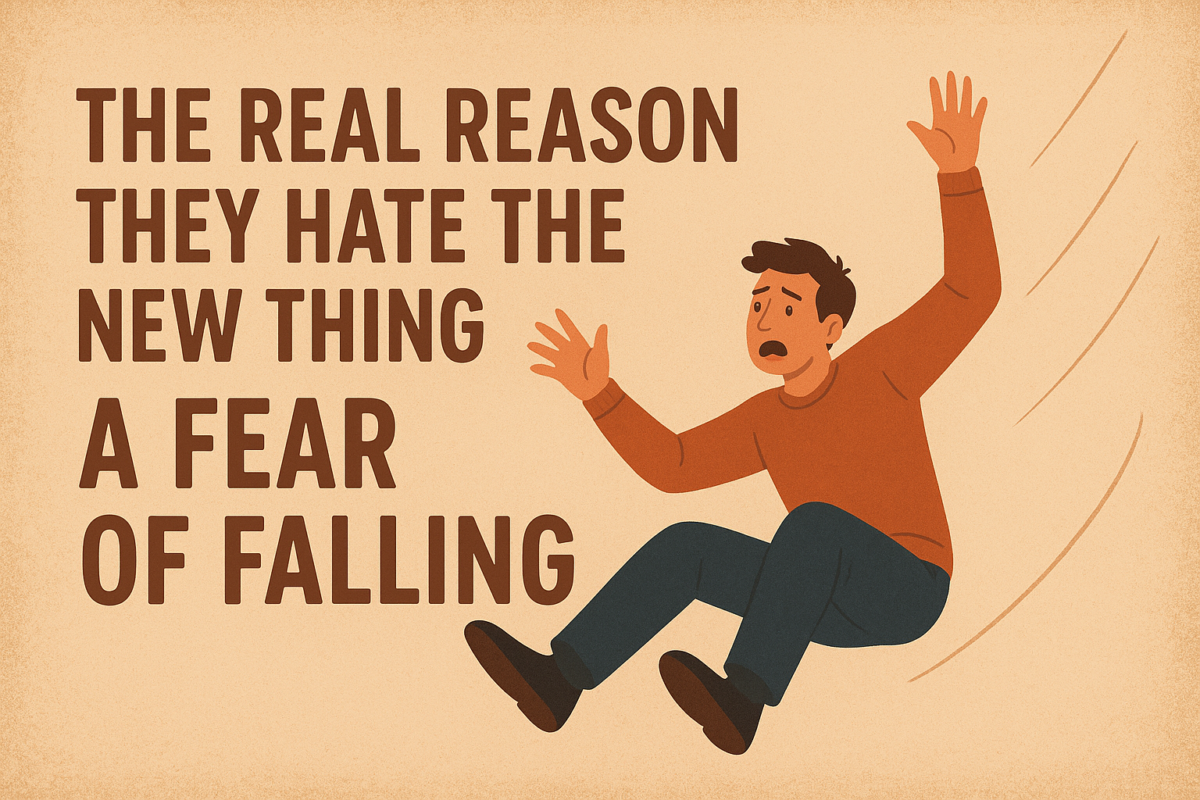The internet is a perpetual motion machine of complaint. Every new technology—from artificial intelligence to self-checkout kiosks—is met with a chorus of critics. They warn of societal collapse, the death of art, and the erosion of human connection.But what if the most vocal critics aren’t prophets of doom, but simply people who sense a shift in the economic ground beneath their feet? What if the loudest complaints about a new technology are not a sign of its inherent danger, but a tell-tale symptom of downward mobility?
The Luddite Trap: It Was Never About the Machine
To understand this dynamic, we must first correct a historical error. The term “Luddite” is now a lazy insult for anyone clumsy with a smartphone. The original Luddites, however, were not technological simpletons. They were highly skilled textile workers in 19th-century England, masters of their craft.Their protests were not a blind rage against the stocking frame or the power loom. Their anger was directed at manufacturers who used these machines in a “fraudulent and deceitful manner” to flood the market with low-quality goods, drive down wages, and bypass established labor practices. The Luddites were fighting for quality, fair wages, and the preservation of their professional status. They were not resisting progress; they were resisting the economic degradation that the new technology, in the hands of unscrupulous owners, was inflicting upon them. Their machine-breaking was a desperate, final act of collective bargaining against a system that was making them downwardly mobile.
The Modern Complaint: A Status Anxiety Signal
Today, the same pattern repeats itself. The most fervent resistance to a new technology often comes from those whose social or economic capital is tied to the old way of doing things. Their complaints, framed as moral or philosophical objections, are often a thinly veiled expression of status anxiety.
In each case, the critic is not simply observing a flaw in the technology; they are experiencing a threat to their identity and income. The technology is not the enemy; the enemy is the loss of competitive advantage.The lawyer who rails against AI legal assistants is not primarily concerned with the philosophical nature of machine-generated briefs; they are concerned that their $500/hour rate is about to be undercut by a $50/month subscription. The tenured professor who dismisses online learning is not solely worried about the Socratic method; they are worried about the diminishing value of their physical presence and institutional gatekeeping.
The Upwardly Mobile Embrace
Conversely, those who are upwardly mobile—the ambitious, the young, and those with less to lose—tend to embrace new technologies with enthusiasm. For them, the new tool is a lever for advancement.
A student in a developing country sees generative AI not as a threat to art, but as a free, world-class tutor and co-pilot.
A small business owner sees remote work tools not as a cultural threat, but as a way to hire global talent and cut expensive office overhead.
A young developer sees blockchain not as a scam, but as a chance to build a new financial system and accrue wealth outside of traditional, inaccessible institutions.
For the upwardly mobile, the new technology is a great equalizer that bypasses the gatekeepers of the old system. They are not afraid of change; they are impatient for it.
The Choice: Adapt or Fall
The history of progress is a history of creative destruction. Every major technological leap—from the printing press to the internet—has displaced a class of people whose value was tied to the scarcity of the old system.The complaints of the downwardly mobile are understandable. It is painful to watch your hard-earned status and skills depreciate. But the choice is not between technology and no-technology; the choice is between adaptation and irrelevance.The true Luddites of history were fighting for a seat at the table, demanding that the benefits of new technology be shared fairly. Today’s “techno-skeptics” often seem to be fighting to flip the table over so that no one else can play the new game.If you find yourself reflexively complaining about the latest technological shift, pause and ask yourself: Is this a genuine moral objection, or is it the sound of my own status slipping? The answer might be the most important piece of self-reflection you do this year. The future belongs to those who learn to wield the new levers, not those who stand on the sidelines lamenting the loss of the old ones.

